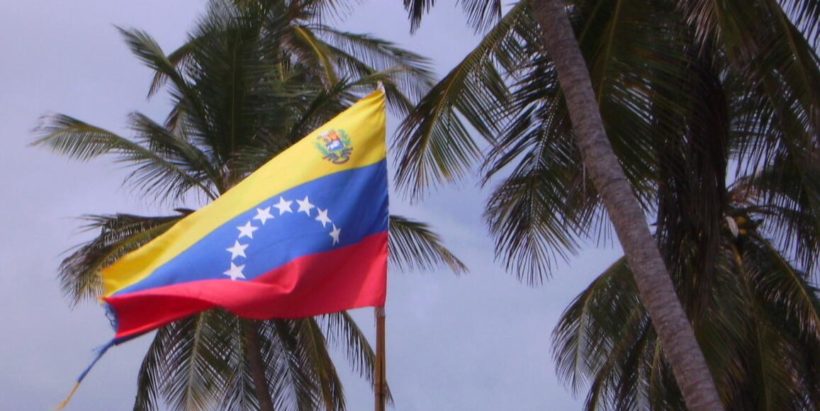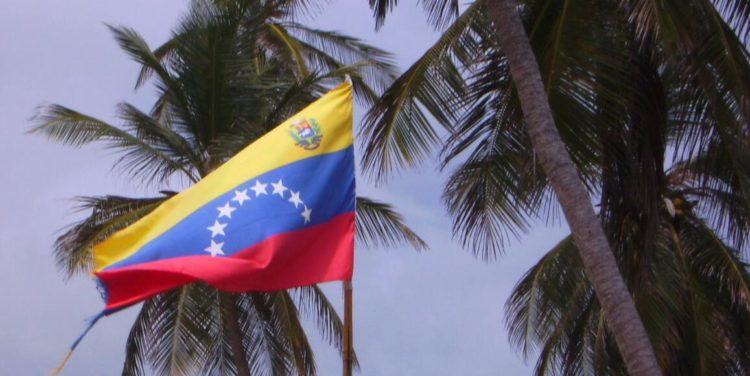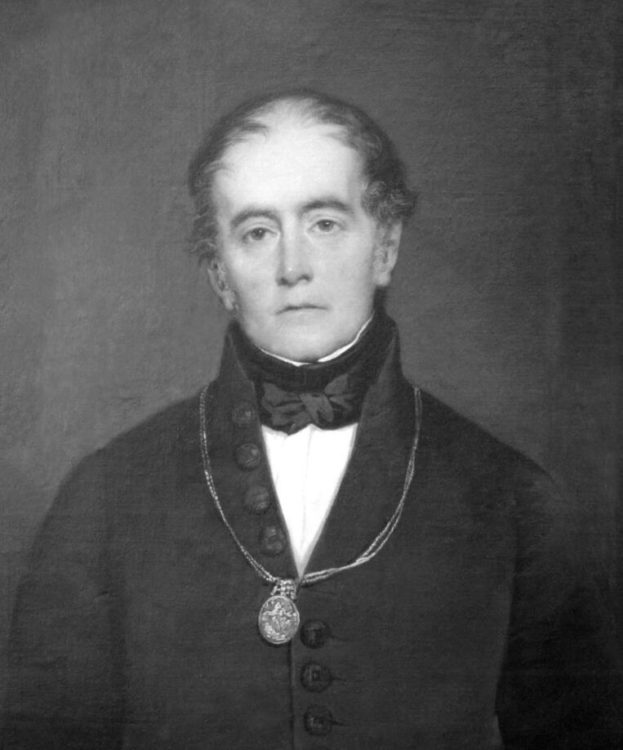Venezuela, Republic of Northern South America, by the Caribbean. Venezuela borders in the west to Colombia, in the south to Brazil and in the east to Guyana. Just off the coast are Trinidad and Tobago and the Netherlands Antilles.
Venezuela was part of the Spanish colonial empire, was proclaimed independent in 1811, became part of Greater Colombia in 1819 and in 1829 an independent republic.
The name Venezuela means “Little Venice”, a name that the Spanish seafarer Alonso de Ojeda gave the north coast of South America when in 1499 he saw indigenous peoples’ buildings in Lago de Maracaibo.
Venezuela’s national anthem (since 1881) is Gloria al Bravo Pueblo (Glory to the Brave People). The lyrics are written by Vicente Salias and the tune is by Juan José Landaeta.
The country’s currency unit is called bolívar soberano (VES).
Geography and environment
Venezuela covers a surface area of 912,050 square kilometers and is the seventh largest country on the American continent. The country has an ongoing border dispute with Guyana.
Venezuela has a varied geography and topography, which includes both the Caribbean coast, the Amazon region, the lowlands ( los llanos ) and the northern end of the Andes mountain range. The country has a varied flora and fauna. Among the most famous nature attractions is a Salto Angel (Angel Falls), the world’s highest waterfall (979 meters).
People and society
Venezuela has just over 31 600 000 inhabitants (2018).
Around 89 per cent of the population lives in urban areas. The three largest cities are the capital Caracas and the cities of Maracaibo and Valencia.
The majority of the population belongs to the Roman Catholic Church, while around two percent are Protestants. Syncretistic religions (like santería ) are widespread in parts of the population.
The official language is Spanish, as well as a number of indigenous languages.
Venezuela has a young population; the average age is 28.7 years. The fertility rate is 2.3 children per woman (2018).
The majority of the population is of mixed European, African and indigenous origin. In a 2011 census, 51.6 percent of the population self-identified as mastis (mixed origin), 43.6 percent as white, 2.9 percent as black, 0.7 of African origin, and 1.2 percent as “other”.
The indigenous population constitutes about 2.8 per cent of the population, distributed among about 30 ethnic groups. Most live in the Amazon region, in the northern Andes, as well as in some of the coastal states. Among the largest indigenous groups are a wayúu, yukpa and barí.
Throughout the 20th century, several waves of immigration came to Venezuela from China and the Middle East, among others. Today, the largest group of immigrants comes from Colombia. One estimates that there are around two million Colombians living in the country. There are also groups from other Latin American countries.
Venezuela saw a sharp fall in the proportion of poor people in the period 1998–2013, from 43.9 per cent to 27.3 per cent. During the same period, the economic inequality between the poor and the rich decreased. Since 2014, the country has been in an escalating and severe economic crisis, which has resulted in a sharp rise in poverty rates. Many have migrated to neighboring countries in South America, the United States and Europe.
State and politics
Venezuela is a federal republic. The constitution, titled Constitución de la República Bolivariana de Venezuela, was approved by a referendum in 1999. The president is both head of state and government as well as commander-in-chief of the military. Furthermore, the country has a national assembly ( Asamblea Nacional ) with 165 seats. Three of the seats are reserved for indigenous people. The representatives are elected for five years at a time, the last election being in 2015.
On July 30, 2017, elections to the Constitutional Assembly were held at the initiative of the government, and the opposition-led National Assembly was deprived of its authorities. President is Nicolás Maduro, first elected in 2013 and then in 2018 for a six-year term.
Venezuela is a federation of 23 states ( estados ), one federal district (Distrito Capital, in practice the capital of Caracas ), and several federal affiliated areas ( dependencias federales ) in the form of offshore islands. The states are further divided into municipalities ( municipios ) and boroughs ( parroquias ).
The capital Caracas consists of the municipality ( municipio ) of Libertador and 22 boroughs ( parroquia ), and also constitutes a federal district (Distrito Capital), one of 24 federal entities in Venezuela.
Libertador, together with the municipalities of Baruta, Chacao, El Hatillo and Sucre (in the state of Miranda) together constitute the metropolitan area of Caracas ( Distrito Metropolitano de Caracas ). The municipalities have elected mayor ( alcalde ), while Distrito Capital is governed by a senior political leader ( Jefe de Gobierno del Distrito Capital ), appointed by the president.
The country’s military forces are composed of the army, the air defense, the naval defense and the national guard. In addition, since 2008 the country has had a reserve force for the military called the Bolivarian militia ( Milicia Bolivariana ). The Minister of Defense ( Ministro de Defensa ) is General Vladimir Padrino López.
Venezuela is a member of the UN and most of the UN’s special organizations as well as the World Bank, the World Trade Organization ( WTO ) and OPEC. In 2016, the country was suspended from the regional intergovernmental organization Mercosur. In 2017, it opted out of the Organization of American States ( OAS ).
History
Kristoffer Colombus arrived in Venezuela in 1498. Venezuela was of little interest to the Spanish Empire during the early colonial period because the country was demanding to conquer and had few resources in the form of gold, silver and slave labor.
The capital Caracas (the full name is Santiago Leon de Caracas) was founded in 1567 by Diego de Losada, after a long battle against local indigenous groups. Indigenous leader El Cacique Guacaipuro was captured and executed on the orders of the Losada in 1568, and today is for many a national hero.
Venezuela was a political peripheral part of the Spanish empire, but the colonial rulers gradually developed an economy based on cocoa, sugar, tobacco, cattle and slave trade. The dissatisfaction with the hierarchical and centralized colonial rule and the economic exploitation of the country led to increasing opposition to the Spanish crown. On July 5, 1811, Venezuela was declared independent by a Republican junta in Caracas. This led to protracted wars between the Republicans and the royalists. Simón Bolívar, the Venezuelan national icon, led the Republicans, while also working to establish a federation between Venezuela and neighboring countries, called Gran Colombia (Greater Colombia). Gran Colombia was established in 1819 and dissolved in 1831 as a result of conflicts between various political factions and regions.
In 1859, the Federal War (Guerra Federal) broke out between the conservative and liberal political factions that had crystallized after liberation. The core of the struggle was the liberals’ struggle for political power and autonomy for the provinces vis-à-vis the conservative Caracas-based elites and landowners. The war claimed hundreds of thousands of lives, and ended three years later. During the next decades and into the 20th century, Venezuela was ruled by a number of so-called caudillos (personalist leaders supported by political and military allies), while the country’s economy, infrastructure and common national identity slowly grew.
In 1958 General Marcos Pérez Jiménez was overthrown, and in 1959 Rómulo Betancourt was elected president of Acción Democrática. This marked the start of a 40-year political era called Puntofijismo. This term refers to a power-sharing pact signed between the Social Democratic Action and the Christian Democrats COPEI ahead of elections in 1959. On the basis of this covenant alternated the two parties in the presidency until Hugo Chavez was elected president of the party Movimiento Quinta República (MVR) in 1998.
The election of Hugo Chávez came after two decades of political turmoil, marking a breach of economic, political and social power relations that had characterized society in the Puntofijo era. The years following the turn of the millennium were marked by political power struggles between the Chávez government’s supporters and opponents. During Chávez’s reign, the state expanded its role in, among other things, the economy and social policy, while at the same time taking a foreign policy turn away from the United States, with which they had formed close alliances throughout the 20th century. Following Chávez’s death in 2013, Nicolás Maduro has held the presidential office, while the country has been characterized by a growing political, economic and social crisis since 2014.
Economy and business
In 1914, under the rule of Juan Vicente Gómez, oil was found in Venezuela. Over the next decades, the country built itself up as one of the world’s largest oil exporters. During the first decades, the oil sector was largely dominated by foreign oil companies. Venezuela’s current national oil company, PDVSA, was first established in 1976.
Around 98 per cent of the country’s export revenue today comes from oil. The country also produces products for export such as cement, steel, aluminum, paper and textile products. Agriculture accounts for just under five per cent of gross domestic product. The United States is Venezuela’s largest trading partner. Other major trading partners are China, India and Mexico.
Former President Hugo Chávez introduced exchange control in 2003 to prevent capital flight. Foreign exchange trading has since been regulated through a state-regulated exchange system, in addition to extensive currency trading on the black exchange. Increasing differences between the official and black exchange-based exchange rates have been a contributing factor to the country’s soaring inflation rates and financial problems.
Knowledge and culture
97 per cent of the population is estimated to be able to read and write (2016), and the average length of schooling is 9.4 years (2014).
The official unemployment rate was 37 per cent in April 2016. 40 per cent of the workforce worked in the informal sector.


